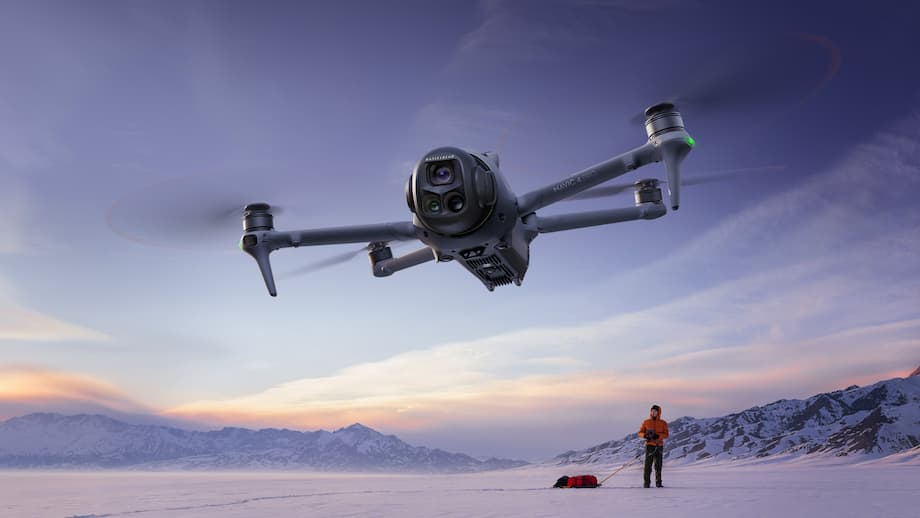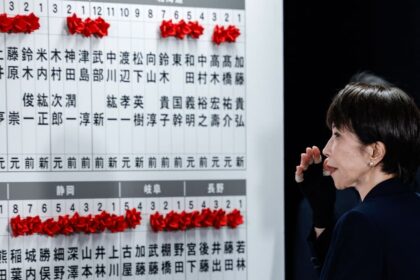Why a US court let the Pentagon keep DJI on its military company list
DJI, the world leader in consumer and commercial drones, will remain on the US Department of Defense list of Chinese military companies after a federal judge rejected the company’s challenge. US District Judge Paul Friedman concluded that the Pentagon had enough evidence to justify keeping DJI on the Section 1260H roster, a list Congress directed the Pentagon to maintain for entities it views as tied to China’s defense industrial base. The ruling does not bar DJI products from sale in the United States by itself, but it strengthens the government’s hand in steering agencies and partners away from the brand and could shape other regulatory actions.
- Why a US court let the Pentagon keep DJI on its military company list
- What the decision means for DJI in the United States
- How the judge evaluated the Pentagon’s evidence
- What is Section 1260H and why it matters
- Why DJI says the listing is unfair
- Possible next steps and appeals
- Impact on drone buyers, first responders, and industry
- The broader US China tech tensions behind the case
- Key Points
The decision lands at a sensitive moment. DJI dominates the US drone market, including a large share of drones used by businesses, photographers, infrastructure inspectors, and many first responder units. US officials have grown increasingly wary of China’s drive to blend civilian and military technology, often called military civil fusion, and they have cited risks that Beijing could compel Chinese tech firms to support state objectives, including data access. DJI disputes that premise and stresses it builds consumer and enterprise tools, not weapons.
Judge Friedman said the Pentagon enjoys broad discretion when it compiles the 1260H list, and he gave added deference because the case touches national security. He also wrote that some Defense Department claims lacked support or contained errors, yet the record still met the threshold required to keep DJI on the list. For DJI, the label carries practical effects, including lost government deals, reputational damage, and added scrutiny from US partners who fear compliance or security risks if they work with a listed firm.
What the decision means for DJI in the United States
Placement on the Pentagon list is not a blanket ban. Retail customers can still buy DJI drones unless a separate restriction applies. The listing can, however, lock a company out of certain federal contracts, grants, and programs, and it signals to the market that the government regards the firm as connected to China’s defense sector. Many public agencies already limit or avoid DJI purchases, and some states have procurement rules that steer departments toward equipment from non Chinese suppliers.
Congress has also tied future market access for Chinese made drones to a national security review. Under a defense law schedule, Chinese manufactured drones must undergo a security assessment before late 2025. If a brand fails that assessment, its products could face a US ban. DJI has said it wants the review to proceed so it can demonstrate that its systems do not pose a national security risk. The company has also complained of intermittent border holds and other disruptions that have made some models harder to find in recent months.
For now, DJI says it will continue operating in the United States while it considers legal options. The company has argued that its technology reduces costs and improves safety for operators in construction, energy, agriculture, filmmaking, and public safety. The court’s decision does not prevent private sector purchases, but it raises risk for government buyers and could accelerate efforts by public agencies to transition to other vendors.
How the judge evaluated the Pentagon’s evidence
The ruling is both narrow and consequential. Judge Friedman did not endorse every argument the Pentagon put forward. He pointed out that the government mixed up details about Chinese industrial development zones when describing where DJI operates. He also wrote that he could not conclude DJI is indirectly owned by the Chinese Communist Party. Even so, he found the record sufficient to conclude DJI qualifies under definitions that capture companies seen as helping China’s defense industrial base, and he emphasized that the Pentagon has latitude to make those calls.
Military civil fusion and Chinese state support
A central part of the case involved military civil fusion, a Chinese state strategy that encourages civilian companies to develop technology that can be used by the armed forces. The judge cited evidence that China’s National Development and Reform Commission (NDRC) designated DJI as a National Enterprise Technology Center, a status that can carry cash subsidies, financial support, and tax benefits. He also noted material indicating that a state backed entity known as Chengtong has some ownership interest in DJI. The court concluded that recognition and support of this kind, combined with the dual use nature of drone technology, could justify treating DJI as a military civil fusion contributor under the 1260H framework.
Dual use technology and battlefield reality
Another thread in the decision turned on how DJI products are used in the real world. Small commercial drones are designed for mapping, filming, inspection, and public safety missions, yet many have been adapted for reconnaissance and targeting in conflict zones. The court acknowledged DJI’s policy that forbids military use, but said the practical reality of how the technology functions carries more weight than the policy on paper.
Introducing his view in the written opinion, US District Judge Paul Friedman underscored that company policies do not negate military utility when it exists:
“Whether or not DJI’s policies prohibit military use is irrelevant. That does not change the fact that DJI’s technology has both substantial theoretical and actual military application.”
The judge noted that some Pentagon assertions fell short, but he emphasized that courts grant agencies wider latitude where national security is involved. He held that the Pentagon’s evidence about state recognition, support, and the dual use nature of the technology was enough to sustain the listing.
What is Section 1260H and why it matters
Section 1260H is a provision in US defense law that directs the Pentagon to identify companies that it believes are tied to the Chinese military or that support China’s defense industrial base. The list is not a criminal accusation or a direct export sanction, but it carries consequences. Federal agencies can treat listed firms as higher risk counterparties, and the designation can trigger limits on contracts, grants, and other federal support. State and local governments often look to the federal posture when setting their own procurement rules.
The 1260H list also sits alongside other US tools. The Commerce Department’s Entity List, for example, restricts US companies from supplying certain technologies to listed entities without a license. The Treasury Department’s investment restrictions for Chinese military industry companies limit US capital access to entities it singles out. DJI was placed on the Commerce Entity List in 2020 and on a Treasury investment blacklist in 2021, measures that have complicated its supply chain and financing. The Pentagon’s 1260H list is different in scope, yet it reinforces a consistent message that US officials view the company as part of a strategic challenge from Beijing.
Why DJI says the listing is unfair
DJI maintains that it is neither owned nor controlled by the Chinese military and that it builds consumer and enterprise drones, not weapons systems. The company says the listing has damaged its reputation and cost it sales, including bans on contracting with multiple US government agencies. DJI has also argued that many companies with operations in China receive state recognition or support, yet they are not on the 1260H list. In the court’s view, the Pentagon does not have to apply the designation uniformly across every company that might share some attributes, and the agency can choose to put one entity on the list while leaving another off.
A DJI spokesperson said the court rejected most of the Pentagon’s reasons but still upheld the listing. Introducing the company’s response, the spokesperson framed the ruling as relying on a broad rationale:
“DJI is pleased that the Court agreed with DJI and rejected most of DoD’s purported justifications for listing DJI, but is disappointed that the Court nonetheless upheld the listing. The decision was based on a single rationale that applies to many companies that have never been listed.”
Possible next steps and appeals
DJI has said it is evaluating its options, which could include an appeal to a higher court. Appeals in administrative law cases can take months, and the standard of review is deferential to agencies, especially where national security is concerned. A separate Chinese technology supplier, lidar maker Hesai Group, lost a similar challenge before the same judge and has appealed. The outcome in that case could provide a guide for how appeals courts assess the Pentagon’s discretion under Section 1260H.
Even if an appeal proceeds, the 1260H listing remains in effect unless a higher court blocks it. That means DJI must navigate the US market while carrying designations from multiple arms of the federal government. The company can still sell products to private customers, but it faces headwinds in public sector and sensitive enterprise sales.
Impact on drone buyers, first responders, and industry
For hobbyists and many businesses, little changes immediately. DJI drones remain available in the US from private retailers. Availability can still fluctuate because of separate trade actions, customs holds, and business decisions by the company or distributors. The larger story is about procurement. Police, fire, and disaster response units across the country built fleets around DJI platforms because of price, performance, and an extensive accessory ecosystem. Some agencies have already switched to non Chinese vendors, while others are budgeting for replacements over several years.
Alternative suppliers exist, including American and European makers that target enterprise tasks like public safety, inspection, and mapping. Those systems can be more expensive, which can slow replacement cycles for local departments with limited budgets. The switch also involves training, accessories, and software migrations, since many workflows are specialized and built around specific models. Developers who write apps for mapping, photogrammetry, and inspection often rely on DJI software kits, so a shift away from DJI can require changes across the toolchain.
Film and television production, agriculture, surveying, and construction firms will keep weighing price and performance. Even if private sector rules do not force a switch, large companies with federal contracts may move to suppliers that carry fewer policy risks. Spare parts, warranties, and software updates will remain important considerations for operators who intend to keep flying existing DJI fleets.
The broader US China tech tensions behind the case
The decision fits into a wider set of US actions aimed at Chinese technology companies. In 2020 the Commerce Department added DJI to the Entity List, which limits certain exports to the firm. In 2021 the Treasury Department included DJI on its investment blacklist for Chinese military industry companies, citing human rights concerns. Multiple US agencies and many states have issued rules that discourage or bar procurement of Chinese drones. Members of Congress have also proposed measures that would curb the use of Chinese drones by critical infrastructure operators and public safety agencies.
Chinese industrial policy and military civil fusion have been central to Washington’s concerns. US officials argue that the Chinese state can compel companies to aid security services and that seemingly benign consumer technologies can be repurposed for surveillance or targeting. DJI disputes those claims, pointing to encryption, data isolation features, and policies that bar military use. The court’s ruling reflects the government’s authority to act on risk assessments even where definitive ownership or control chains are hard to map, especially when the technology has proven military utility.
Key Points
- US District Judge Paul Friedman upheld the Pentagon’s decision to keep DJI on the Section 1260H list of Chinese military companies.
- The court said the Defense Department had enough evidence and enjoys broad discretion, especially in national security matters.
- Evidence the judge cited included Chinese state recognition of DJI as a National Enterprise Technology Center and the dual use nature of drone technology.
- The judge rejected some Pentagon claims but ruled that errors did not undermine the overall basis for the listing.
- Being on the list is not an outright ban on sales, but it limits federal contracts and heightens compliance and reputational risks.
- DJI says the ruling rests on a rationale that could capture many other firms and is evaluating a potential appeal.
- Chinese made drones face a US national security assessment deadline in late 2025, and failure could trigger future sales restrictions.
- Public agencies may accelerate moves to non Chinese drones, while private buyers can still purchase DJI products for now.












